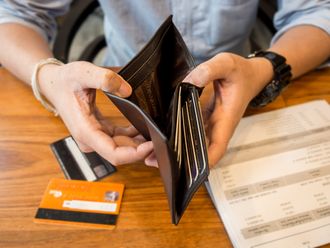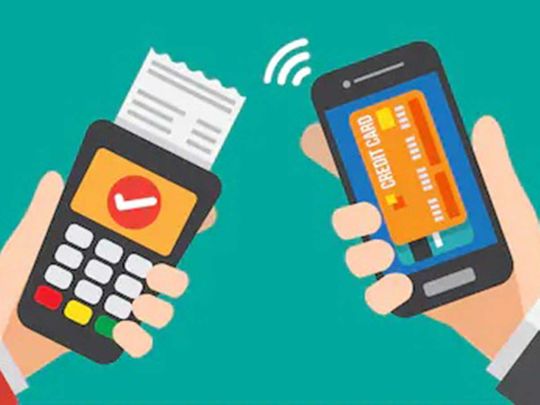
If you’re looking for a contactless way to pay for goods and services in the UAE, especially given the distancing conditions surrounding the current pandemic, consider downloading a digital wallet on your phone. Representing a shift from traditional credit cards to a more mobile form of payment, electronic wallets are a form of contactless mobile payment systems and are often thought of as digital versions of your debit or credit cards stored in an app on your mobile device.
The UAE's mobile wallet market is anticipated to grow at an annual rate of 24 per cent and reach $2.3 billion (Dh8.44 billion) by 2022. However, before we first look at what are the best e-wallet options available in the UAE, let’s first understand the key perks and risks associated with using them more often than your plastic cards.
Also see
Benefits of digital wallets
Mobile wallets make purchases easy, fast and super convenient. Instead of using payment cards, you can simply hold your phone near a compatible payment terminal to buy items. Most of these products work with Near Field Communication (NFC) technology which makes them suitable for in-store transactions and in some cases, e-commerce payments. In addition to these benefits, here are some of the other perks for digital wallet users:
• Superior security: Unique transaction identifiers or tokens are exchanged in each payment which prevents stores from retaining your account information.
• Bonuses and discounts: You will often be able to redeem points and make use of promotions while using a digital wallet.
• Minimise wallet clutter: You can pay without having to carry your cards since their details will already be stored in your e-wallet.
Other perks that are in it for you comprise of easy access to funds, ease in adding funds, helps keep a track on day-to-day spending, and in some cases remitting money as well.
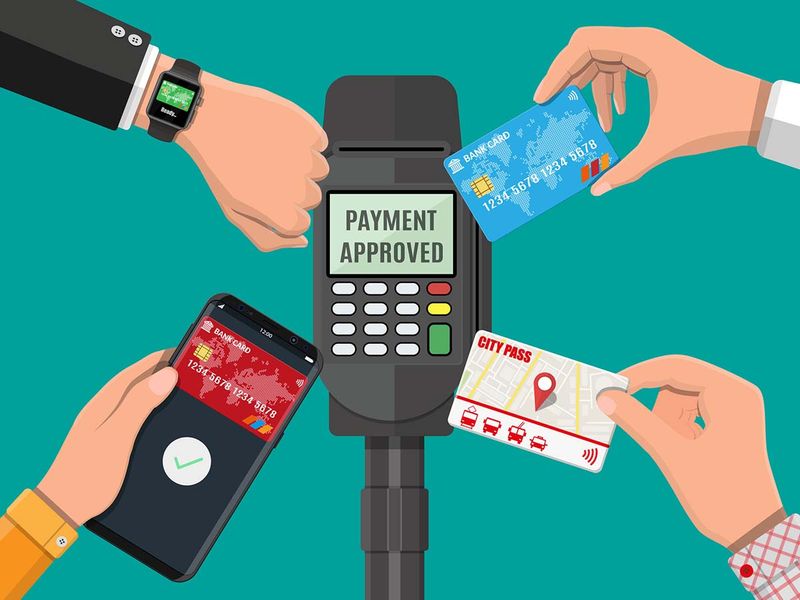
Key downsides of e-wallets
However, key downsides of e-wallets are there are still limited mobile wallet supporting merchants, or retailers, and also the overhanging risk of phone theft and hacking of your mobile device. Moreover, there are still many who are still hesitant or reluctant to adapt to the technological advancement, over two decades after its launch, especially among those un-savvy about tech.
Here is a break-down of the key risks that have slowed down the process of it being adapted rampantly:
It is not fully available worldwide: The number of retailers that accept payments from an electronic wallet depends on the actual wallet you choose.
It still requires you to carry something: Although an electronic wallet offers more convenience for many consumers, it doesn’t fully eliminate the requirement of carrying something with you. If you don’t have your mobile device on your person, then you have no way to complete a transaction.
It requires your device to have a charge: There’s also the disadvantage that an electronic wallet requires you to have a charged device to have it operate. If you’re carrying a traditional wallet, you won’t need to worry about how much battery life is left on your phone.
It doesn’t eliminate security risks: The security of your smartphone or mobile device is dependent on the settings you use. If you don’t have your device protected with some type of password, then someone could steal your device and potentially access the funds in your bank account or credit cards.
It may charge you more to process payments: Many of the electronic wallets which offer a rewards program will charge you a fee to transfer those rewards. You may be required to process payments in a specific way to access these benefits as well.
It could encourage reckless spending: When money is electronically based instead of a physical item, some people struggle with their spending habits. If you struggle to maintain a budget with a traditional wallet, then an electronic wallet might make that issue even worse.
Evolution of electronic payments in the UAE
The mobile payment services in the UAE have recorded strong growth in recent years, supported by policy reforms and innovation from key players such as Samsung Pay, Apple Pay, Mashreq Pay, FAB Payit, and Emirates NBD Pay. Next, we shall look at the e-wallet options available in the UAE – those whose services have been launched in the country – while also considering those that have been turning increasingly popular.
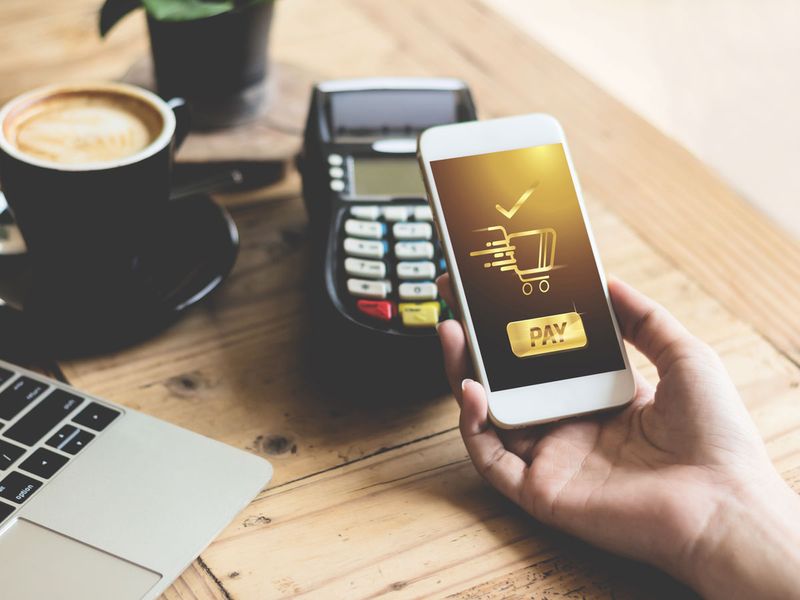
Popular e-wallet options in the UAE
Among the global brands that have been increasingly popular since their launch in the UAE, be it Apple Pay, Samsung Pay or Google Pay, in the emirates e-wallets like Beam, Emirates Digital Wallet, Etisalat Wallet, Mashreq Pay, FAB Payit and Emirates NBD Pay are used as well.
Samsung Pay: Samsung Pay, developed by the South Korean electronics giant to work on a number of its devices, was introduced in the UAE in April 2017. The set-up process is similar to Google and Apple, but one advantage of Samsung Pay is that it works with card readers that still rely on magnetic strips, which are the majority of card readers available at retailers in the UAE.
Apple Pay: Apple Pay is the payment system put together by Apple and it runs on iOS and Mac devices, as well as in the Safari web browser. Apple Pay requires you to input your credit card details into your phone, a process that requires your bank’s verification. Apple Pay works only on Apple devices.
Google Pay: Google Pay, also known as G Pay, is the digital wallet platform and online payment system developed by Google. The Google Pay system works similarly to Apple Pay, but the advantage to Google is that just about everyone can use it. While Apple Pay works only on Apple devices, G Pay works on both Android and iOS. It also works in numerous apps and websites.
Beam: Beam is one of the older digital wallets on the market and has been in operation in the UAE since 2012. Unlike most other systems available in the country, Beam allows shoppers to earn cash back on their purchases, while paying digitally for items on their phone. In 2016, Beam became the first app to let UAE pay for fuel from their car. A drawback is the limited number of establishments that accept it, but on the list of merchants that do accept it are petrol stations ENOC and EPPCO.
Etisalat and DIB's eWallet: eWallet, launched as a joint venture of Etisalat and Dubai Islamic Bank (DIB) in October 2019, is a digital wallet available to anyone with a valid Emirates ID, regardless of who they bank with. With an offer to get up to Dh50 every month on local bill payments, eWallet also has the option of sending money to over 200 countries and territories with an offer to get up to Dh100 every month for international remittance.
also read
- Save money grocery shopping in Dubai: Fruits get cheaper by weekend, vegetable prices drop mid-week!
- Best time to buy: Gold cheap for now, but not for long as price seen doubling in years ahead!
- NRIs in UAE: Wondering if there has been any change to the Indian tax charge on remittances?
- Investing in pandemic times: What will work for you? Find out…
UAE banks individual e-payment platforms
Most leading UAE banks have launched their own digital platforms to encourage people going cashless. As these platforms are bank-run or operated by the bank themselves, most of them only allow their own bank-issued cards to be operated on these platforms. Banks like Emirates NBD, First Abu Dhabi Bank (FAB), Mashreq and RAKBANK have launched individual electronic cash payment platforms. However, apart from FAB’s ‘payit’, only the debit and credit cards belonging to the other respective banks can be used in their corresponding platforms.
Here’s a list of few of them, how they work and what are some advantages associated with them:
Emirates NBD Pay: Launched in 2016, how it works is when you enrol your Emirates NBD debit or credit card for Emirates NBD Pay, a ‘Virtual Card number’ is issued for each card. This is a unique alternative 16-digit-number which will be used instead of the number on your physical card to make payments more secure. In Emirates NBD Pay transactions, the transaction slip will show only the Virtual Card number.
Mashreq Pay: Launched in 2017, the app seeks to address customers’ security concerns as well, with the actual card details are not stored in the wallet. Instead, every card is tokenised, which means the actual card number is converted into a random token number and the token number is stored in the wallet. This prevents hackers from skimming the card details to commit fraud.
FAB payit: Launched in 2018, by First Abu Dhabi Bank (FAB), the UAE’s largest bank, it is available to anyone with a valid Emirates ID, regardless of who they bank with, and the sign-up process takes less than two minutes. With an offer to get up to Dh50 off your first purchase, the card can be used across its list of partners and merchants across the UAE. It also has the option of sending money to over 200 countries and territories with an option to track your expenses and spends as you go along.
RAKBANKpay: Launched in 2017, you can also choose to pay through this method, if you are a RAKBANK accountholder. After you’ve added your RAKBANK credit, debit or prepaid card to your smartphone or smartwatch, like the others, you can use it to pay wherever the ‘contactless’ option is availed. You can withdraw cash at over 170 contactless-enabled RAKBANK ATMs as well.
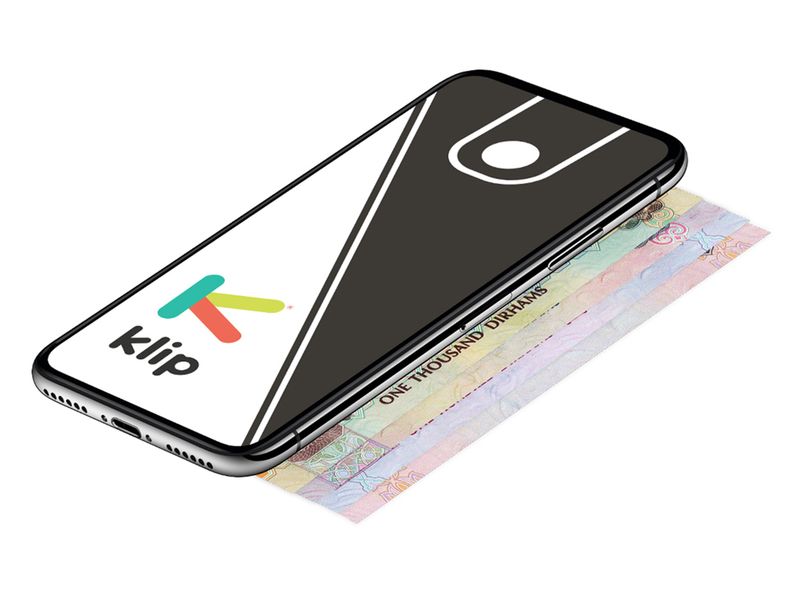
New upcoming UAE e-payment mega roll-out - ‘klip’
Emirates Digital Wallet is developed and implemented under the aegis of the UAE Banks Federation (UBF) and is jointly set up by 16 of the UAE's national banks and their cashless e-platform ‘klip’ is soon be rolled out across the country.
It is expected to be made available whether or not you have a bank account. There is no minimum requirement, other than being a resident of the UAE and having a SIM card. It doesn’t charge for the basic service, but other costs will come into play for overseas transfers, obtaining cash through an ATM and transferring cash from a credit or covered card.




_resources1_16a4a1613d8_small.jpg)

